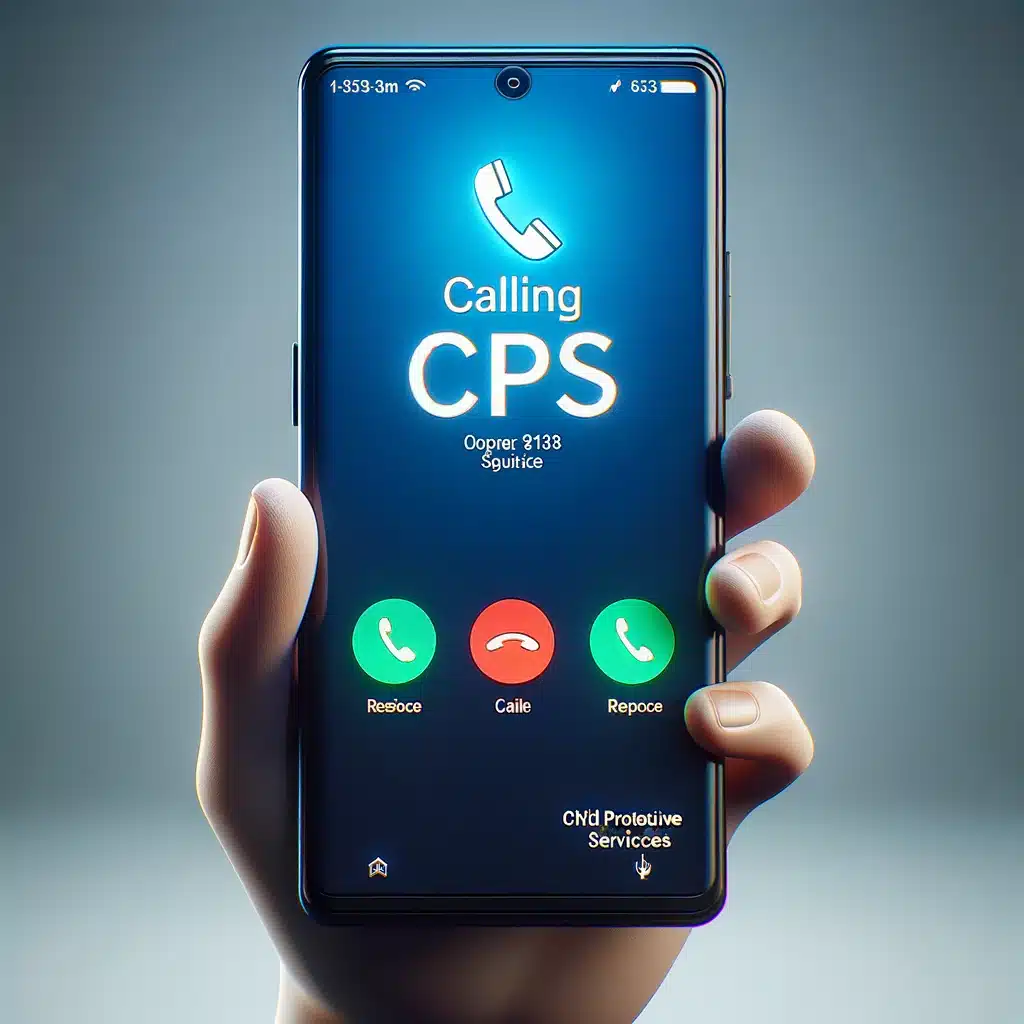Someone Called CPS on Me: The Ultimate Guide to Navigating the Rollercoaster Ride!
Have you ever had one of those moments when life takes an unexpected turn, and you find yourself on a wild rollercoaster ride without even buying a ticket? Well, imagine this: someone called CPS on you! Yep, that’s right. Child Protective Services swooped in out of nowhere, throwing you into a whirlwind of questions, concerns, and anxiety. But fear not! We’re here to be your trusty guides on this wild adventure, giving you all the insider tips and tricks to navigate the CPS investigation process with confidence and grace.

Short Answer
Someone called CPS on me? Don’t panic! In this blog post, we’ll be your expert navigators, providing insights into the investigation process, your parental rights, and even shedding light on the impact on your child. So buckle up and let’s embark on this thrilling journey together!”
Reasons to Keep Reading
Unveiling the Mysterious CPS Investigation Process: We’ll dive deep into the nitty-gritty details of how CPS conducts interviews, gathers evidence, and assesses the safety of your child. No more secrets – you’ll be armed with knowledge!
Protecting Your Parental Rights: You deserve to know your rights, and we’ve got you covered! From legal representation to challenging allegations, we’ll ensure you’re well-equipped to advocate for yourself in the CPS realm.
The Child’s Perspective: While we explore the parents’ side, let’s not forget about the little ones who often go unnoticed. We’ll discuss the potential emotional and psychological impact on your child and the support services available to help them thrive.
Collaborative Approaches: Say goodbye to adversarial battles! We’ll reveal alternative approaches to resolving issues and ensuring your child’s safety, including mediation, family support services, and the power of working together as a team.
Reunification and the Road to Healing: If your child is temporarily removed from your home, don’t despair! We’ll guide you through the process of reunification, shed light on the services available, and share the factors considered by the court in determining when it’s safe for your child to return.
Appeals and Legal Remedies: Disagree with a decision? We’ve got your back! Learn about the appeals process, legal remedies, and how the court reviews CPS actions. You have the power to challenge and seek justice.
And more reasons to keep reading:
Support Resources for Super Parents: While having an attorney is crucial, we’ll go beyond that! Discover a world of support resources, from counseling services to parent education programs and community organizations, all aimed at helping you navigate this challenging journey.
Cultural Considerations: We celebrate diversity! Explore how cultural factors play a role in CPS cases and outcomes, ensuring fair evaluations that honor and respect different backgrounds and beliefs.
Long-Term Effects and Follow-Up: The journey doesn’t end with court hearings! We’ll discuss the potential long-term impact on your family, the importance of ongoing monitoring, and the need for post-case services to ensure a brighter, more secure future.
Building a Cooperative Relationship with CPS: Adversaries? Not anymore! Discover the benefits of maintaining a cooperative relationship with CPS, effective communication strategies, and the power of working together for the ultimate goal – your child’s well-being.
So fasten your seatbelts, my friends, and get ready to conquer the CPS rollercoaster like a pro! With our insightful guidance, you’ll navigate the twists and turns, debunk myths, and come out on top. It’s time to reclaim your power and ensure the best possible outcome for your family. Let’s dive right in!
Someone Called CPS on Me: Understanding the Investigation Process and Parental Rights
Have you ever found yourself in a situation where someone called Child Protective Services (CPS) on you, alleging abuse or neglect of your child? It’s a distressing experience that raises countless questions and concerns. Who made the call? What incident did they report? Is the report about you or someone else? If it’s your spouse, does your spouse have to leave? Could your child be taken away from your home? These questions can be terrifying, and it’s important to understand the process and your rights when facing a CPS investigation.

CPS Investigation Process: Unraveling the Mystery
When CPS receives a report about possible abuse or neglect of a child, their responsibility is to investigate and determine whether the allegations hold any merit. Understanding the investigation process is crucial to navigate through this challenging time.
CPS will gather information about your child, yourself, and the incident in question. Initially, they will collect fundamental details. These include your child’s name, the name of their school, and yours and your spouse’s names. Depending on the severity of the allegations, it may take up to seventy-two hours for CPS to schedule a meeting with you and your spouse to discuss the reported claims.
To assess the safety of your child, CPS will consider various factors, including your emotional control while disciplining your child, the overall safety of your home environment, your willingness to address the allegations with the help of your attorney and CPS caseworker, your child’s nutrition and well-being, and whether there are any individuals in your child’s life who may pose a threat to their safety. These individuals could include your spouse, significant other, or other relatives.
|
CPS Investigation Process |
Key Points |
|
CPS conducts interviews, gathers evidence, and assesses safety |
– Interviews with involved parties |
|
– Collection of evidence | |
|
– Assessment of child’s safety | |
|
Investigation starts with basic information |
– Child’s name |
|
– School attended | |
|
– Names of parents/spouse | |
|
Timeline for CPS contact varies |
– Investigation scheduling may take up to 72 hours |
|
– Initial meeting with CPS to discuss allegations | |
|
Factors considered for child’s safety |
– Parent’s emotional control during discipline |
|
– Overall safety of home environment | |
|
– Willingness to address allegations and make changes | |
|
– Child’s nutrition and well-being | |
|
– Identification of potential threats in the child’s life |
Safeguarding Parental Rights
While it is important to protect the well-being of the child, it’s equally important to recognize and safeguard the rights of parents involved in a CPS case. As a parent, you have the right to legal representation. This ensures that your voice is heard in court and providing you with an opportunity to challenge the allegations made against you.
During this challenging period, it’s essential to have an attorney who can advocate for your rights and represent your interests in court. If you qualify financially, the court may provide you with an attorney. Alternatively, you can choose to hire your own legal counsel.
The Impact on the Child: Navigating Emotional and Psychological Effects
While the focus of CPS involvement is often on the parents, it is vital to consider the potential impact on the child. CPS intervention and investigations can have significant emotional and psychological effects on children. It’s important to address their well-being and provide the necessary support services.
Children may experience confusion, fear, and anxiety during this process. They may need counseling or therapy to help them navigate their emotions and provide them with a safe space to express themselves. It’s crucial for parents to prioritize their child’s mental and emotional well-being throughout the CPS case.

Collaborative Approaches: Resolving Issues and Ensuring Safety
In CPS cases, it’s important to recognize that collaborative approaches can lead to better outcomes. While the possibility of creating a safety plan or placing the child with a relative is mentioned briefly, it’s worth exploring alternative approaches to resolve issues and ensure the child’s safety.
Mediation, for example, can offer a productive platform for parents, CPS, and other relevant parties to come together and find common ground. Additionally, family support services can provide valuable resources and guidance to address the concerns raised by CPS. By working collaboratively, families have a better chance of resolving issues effectively and ensuring a safer environment for the child.
Reunification and Reunification Services: The Path to Healing
If a child is removed from the home, the process of reunification becomes paramount. The article briefly mentions court hearings but does not delve into the steps involved in reunification or the services offered to support this process.
Reunification typically involves a well-defined roadmap that outlines the necessary steps to ensure the child’s safe return to the parents’ care. The court and CPS consider factors such as the completion of required programs, counseling, and therapy, as well as the establishment of a stable and safe home environment. Reunification services are designed to support and assist families throughout this challenging process.
Appeals and Legal Remedies: Challenging Decisions
The article neglects to provide information on the options available to parents who disagree with CPS decisions or court orders. It’s essential to understand the appeals process and the legal remedies that can be pursued to challenge decisions made by CPS or the court.
If you disagree with a decision or order, you have the right to appeal and present your case to a higher court. This process allows for a review of the decisions made and provides an opportunity to present evidence or arguments that may impact the outcome. It is crucial to consult with your attorney to understand the specific appeals process in your jurisdiction and to explore the best course of action.
Support Resources for Parents: Accessing Help
While the importance of having an attorney is mentioned, the article does not provide information on other support resources available to parents involved in a CPS case. Accessing various support services can be beneficial during this challenging time.
Counseling services can provide emotional support and guidance for parents and children alike. Parent education programs offer valuable resources to enhance parenting skills and ensure the provision of a safe and nurturing environment. Additionally, community support organizations can connect families with valuable local resources, such as housing assistance, food banks, and childcare services.
Cultural Considerations: Acknowledging Diversity
Cultural factors can play a significant role in CPS cases and their outcomes. Understanding and acknowledging cultural beliefs, practices, and norms is crucial for CPS and the court when assessing the safety and well-being of the child.
CPS and the court should take cultural considerations into account to ensure fair and unbiased evaluations. This includes recognizing the impact of cultural backgrounds on parenting styles and approaches, as well as considering cultural community support systems that may provide additional resources and assistance.
Long-Term Effects and Follow-Up: Building a Strong Foundation
While court hearings are mentioned briefly, the article does not address the long-term effects of CPS involvement or the need for ongoing monitoring and support after the case is closed. It’s important to understand the potential long-term impact on the family and the steps necessary to build a strong foundation moving forward.
The effects of a CPS case can be long-lasting, both for the parents and the child. It is essential to seek any necessary counseling or therapy to address and overcome the challenges that arise. Ongoing support services can help families rebuild trust, establish healthier relationships, and implement preventive measures to avoid future CPS involvement.
Collaborative Relationship with CPS: Working Together for the Child’s Well-Being
While the article emphasizes the potential adversarial nature of CPS involvement, it does not highlight the importance of maintaining a cooperative relationship with CPS throughout the process. A collaborative approach is beneficial for everyone involved, especially the child.
Effective communication, cooperation, and working together with CPS can lead to better outcomes. By establishing open lines of communication, parents can understand CPS concerns, address them proactively, and demonstrate their commitment to their child’s safety and well-being.
In conclusion, when someone calls CPS on you, it’s vital to understand the investigation process, your parental rights, and the potential impact on your child. Collaborative approaches, reunification services, and support resources for parents play a crucial role in navigating the CPS system. By acknowledging cultural considerations, addressing long-term effects, and fostering a cooperative relationship with CPS, families can work towards the best interests of their child and establish a healthier future.
Hang on Tight! You’ve Conquered the CPS Rollercoaster!
Congratulations, fearless reader! You’ve reached the end of our exhilarating journey through the world of CPS investigations. From heart-pounding moments to eye-opening revelations, we hope you’ve found our guide both informative and entertaining. Now, let’s wrap things up with a bang and leave you with a burst of inspiration and a sense of triumph!
Short Answer: “Someone called CPS on me? Fear not, brave adventurer! Armed with knowledge about the investigation process, parental rights, and the impact on your child, you’ve become a CPS superhero. Remember, collaborative approaches, reunification services, and a cooperative relationship with CPS are your secret weapons. You’ve got this!”
As we bid farewell, let’s take a moment to reflect on the resilience and strength you’ve discovered within yourself. You faced unexpected twists, daunting challenges, and the ever-present rollercoaster of emotions. But through it all, you remained steadfast, championing your child’s well-being and protecting your parental rights like a superhero donning a cape.
Remember, this journey wasn’t just about survival – it was about growth. You’ve gained a profound understanding of the CPS investigation process, your rights as a parent, and the importance of collaboration. You’ve discovered the impact on your child and learned how to provide them with the love, support, and resources they need to thrive.
But the adventure doesn’t end here!
As you step off the CPS rollercoaster, you embark on a new chapter filled with hope, empowerment, and a renewed commitment to your family’s happiness. Take the lessons learned, the connections made, and the resilience forged, and continue building a safe and nurturing environment for your child.
So, my fellow superheroes, embrace the journey ahead with unwavering determination and a heart full of love. Remember that you are never alone. Reach out to the support resources available, lean on your community, and celebrate the unique cultural tapestry that makes us who we are.
You’ve proven that when life throws unexpected twists our way, we have the power to rise above. You can navigate the challenges with grace. You’ve triumphed over the ups and downs of the CPS rollercoaster, emerging stronger, wiser, and ready to create a brighter future for your family.
Now, go forth, dear reader, and let your resilience shine as a beacon of hope for others. You’ve got the strength, the knowledge, and the support to conquer any obstacle that comes your way. Remember, you’re not just a survivor – you’re a CPS superhero!
Thank you for joining us on this thrilling adventure. Until we meet again, keep spreading love, embracing collaboration, and never forget the incredible power within you. Your journey continues, and we’re cheering you on every step of the way!
Other Related Articles:
- Ultimate Guide to Surviving a CPS Investigation
- Navigating a CPS case as a non-offending parent
- How to Prepare for a CPS Interview in Texas: A Comprehensive Step-By-Step Guide
- What happens if CPS won’t help?
- What Kinds of Questions can CPS ask a Child?
- What happens if I ignore CPS?
- How does CPS decide whether to open a case?
- What happens when someone makes a report to CPS
- How do you fight a false CPS report?
- Should you talk to CPS without a lawyer?
Frequently Asked Questions
Can you sue for false accusations in Texas?
How do I report someone to CPS in Texas?
How do I report someone to CPS anonymously in Texas?
Why would a child make false accusations?
Bryan Fagan, a native of Atascocita, Texas, is a dedicated family law attorney inspired by John Grisham’s “The Pelican Brief.” He is the first lawyer in his family, which includes two adopted brothers. Bryan’s commitment to family is personal and professional; he cared for his grandmother with Alzheimer’s while completing his degree and attended the South Texas College of Law at night.
Married with three children, Bryan’s personal experiences enrich his understanding of family dynamics, which is central to his legal practice. He specializes in family law, offering innovative and efficient legal services. A certified member of the College of the State Bar of Texas, Bryan is part of an elite group of legal professionals committed to ongoing education and high-level expertise.
His legal practice covers divorce, custody disputes, property disputes, adoption, paternity, and mediation. Bryan is also experienced in drafting marital property agreements. He leads a team dedicated to complex family law cases and protecting families from false CPS allegations.
Based in Houston, Bryan is active in the Houston Family Law Sector of the Houston Bar Association and various family law groups in Texas. His deep understanding of family values and his professional dedication make him a compassionate advocate for families navigating Texas family law.




